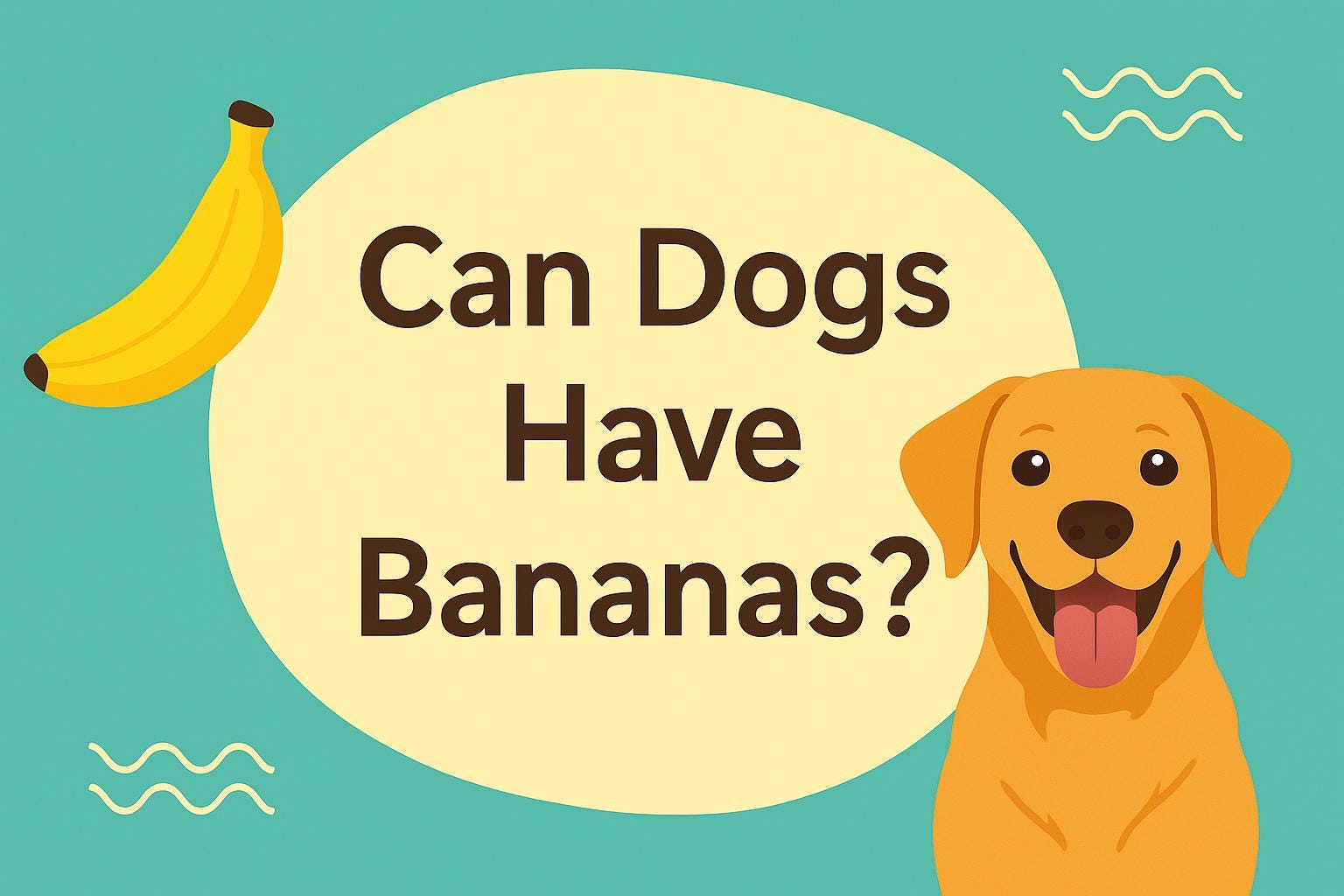If you’re a dog owner, you may have wondered whether that sweet, yellow fruit you love is safe for your pup too. The short answer: yes, dogs can eat bananas in moderation — but there are caveats. In this post, we’ll break down the benefits, risks, serving guidelines, and FAQs so you can share treats safely and smartly.
Why Banana? Nutritional Benefits & Drawbacks
What’s good in a banana for dogs?
Bananas are packed with some useful nutrients that can supplement a dog’s diet in small amounts:
- Potassium — supports muscle and heart health
- Vitamin B6 — helps with red blood cell formation and brain function
- Vitamin C — an antioxidant, though dogs can synthesize some on their own
- Fiber — can aid digestion, in moderation Magnesium, biotin, copper — trace minerals present in bananas
These benefits are real — but not enough to replace a balanced commercial diet.
The drawbacks: sugar & overfeeding risks
The biggest caution is sugar content. Bananas are relatively high in natural sugars, which can lead to weight gain or blood sugar issues if overfed. Also, banana peels are not toxic, but they’re indigestible and may cause blockages or stomach upset, so peeling is essential. Puppies, toy breeds, diabetic dogs, or dogs with certain digestive sensitivities should be extra cautious.
How Much Banana Is Safe? (Portion Guidelines)
A good rule of thumb among pet nutritionists is the “10% rule”: no more than 10% of your dog’s daily caloric intake should come from treats (including fruits).
Best Practices: How to Serve Banana to Your Dog
Here are tips to safely share bananas with your dog:
- Peel it — never feed the peel.
- Slice into small pieces — make them bite-sized to avoid choking.
- Serve plain — no added sugar, chocolate, or coatings.
- Try freezing — frozen banana slices can make a refreshing treat in warm weather.
- Introduce gradually — for dogs new to banana, give a small piece first and monitor for digestive upset (diarrhea, vomiting). \
- Avoid banana-based human products (banana bread, banana chips, desserts) — often contain other ingredients harmful to dogs (sugar, xylitol, butter).
What About Banana Peels, Banana Bread, & Other Forms?
- Banana peels: Not toxic but very hard to digest. Could cause intestinal blockage
- Banana bread, banana muffins, banana-flavored sweets: Often contain sugar, butter, salt, or artificial sweeteners — not safe for dogs.
- Banana chips: Frequently fried or sweetened, with high fat and sugar content — better to avoid.
- Plantains: Not the same as bananas; they may be more starchy and harder to digest for dogs, depending on how cooked.
Who Should Avoid Bananas?
Dogs with the following conditions should probably avoid or limit banana intake:
- Diabetes or insulin resistance — banana’s sugar may worsen control
- Obesity / overweight dogs
- Gastrointestinal sensitivities or chronic GI issues
- Allergies or intolerances (though rare)
- Very young puppies — their systems may not handle new foods well
Always talk to your veterinarian, especially if your dog is on medications or has existing health issues.
Bananas can be a safe, natural, and enjoyable treat for many dogs — but only when given in moderation, prepared properly, and with an eye on their individual health profile. At Patty’s Pet Foods, we always recommend treats complement a balanced, nutritious diet — never replace it.
